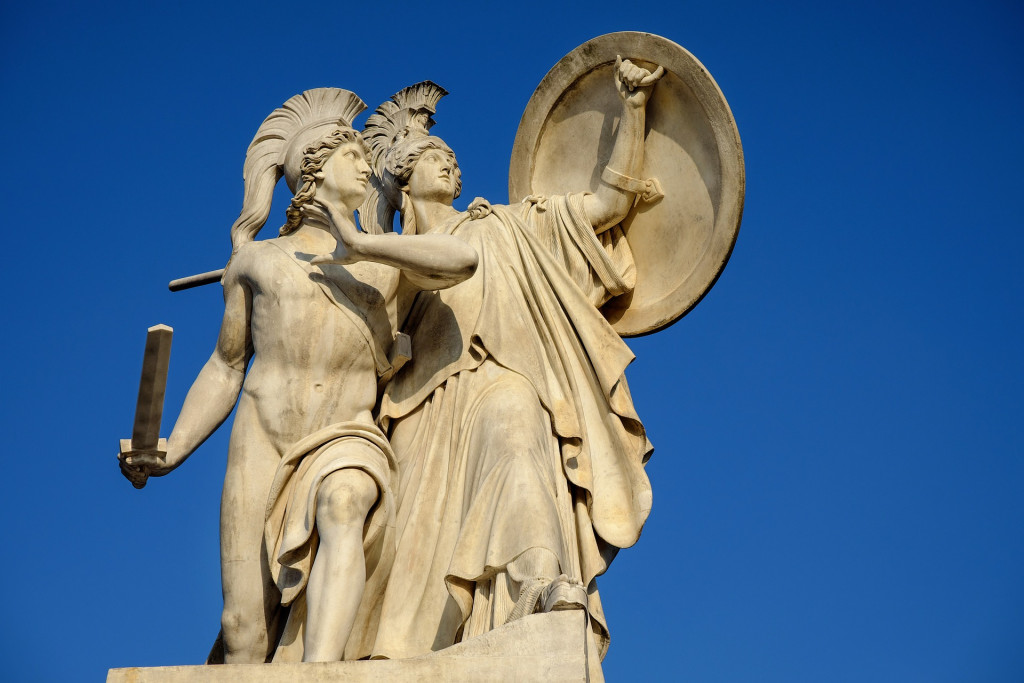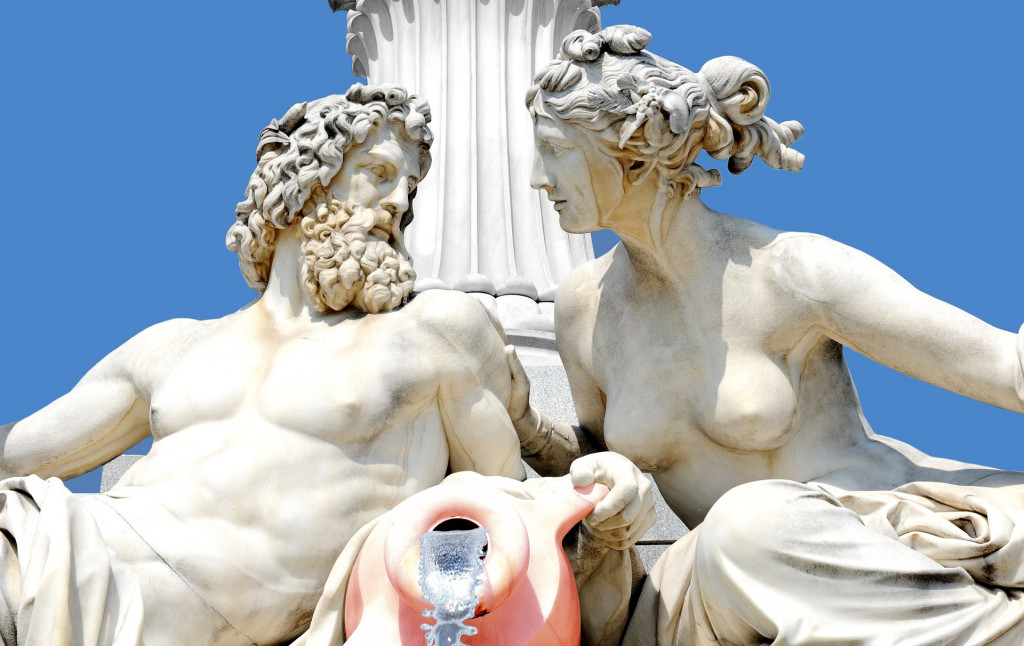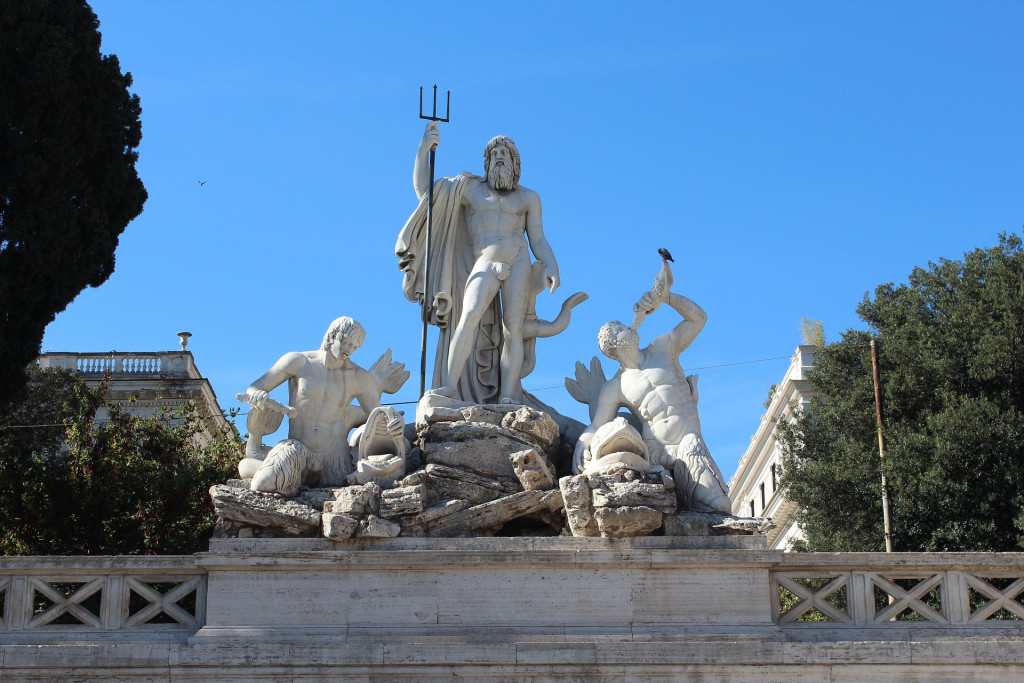Table of Contents (click to expand)
The Romans were not borrowing gods, so much as they were borrowing additional information about their own local deities.
Arguably dubbed the oldest and most famous act of plagiarism, the Roman pantheon (the collection of deities that the Romans worshipped) is notorious for stealing other gods and making them their own. The Romans, however, weren’t the only ones to do this (the Akkadians did it with Sumerian gods, while the Greeks and Egyptians had a complicated case of syncretization).
This “mixing” is based on a concept called Interpretatio graeca or Interpretatio romana, based on which culture you use as a starting point, wherein other traditions and religious systems are understood through an existing one, leading to shared features, gods, rituals and other parallels between the two.
Importing Gods
Through trade routes in the ancient world, along with grains and stones and animals, gods were often exported too! Traders who docked on shores abroad often carried idols and myths that gave birth to local cults, which could evolve and enter popular pantheons. The Mesopotamian goddess Ishtar, for example, travelled to Greece through the Phoenician goddess Astarte. Astarte, to the Greeks, became Aphrodite at Cythera, a Greek island, before the cult gained prominence to the extent that she entered the Olympian pantheon.

In general, it was a clever tactic to both enrich a culture and religion by adding established elements from other religions, and to keep conquered peoples within the fold of their conquerors. Conquered people were more likely to accommodate, if not accept, foreign rulers if they believed in and feared the same gods, and had similar cultures.
Also Read: What Are The Ancient Seven Wonders Of The World?
Mergers And Acquisitions
So, the question shouldn’t be why the Romans stole other peoples’ Gods at all. What they did was not stealing, but merging their own religion with that of the people they encountered and conquered. The most obvious connection is between the Roman and Greek gods (Jupiter-Zeus, Juno-Hera, Venus-Aphrodite and so on), but there were other instances of using local terminology for new gods.

This syncretization of gods shows exactly how deep of a cultural impact Greece had on Rome. Syncretization wasn’t based on perfect synonymity, but usually on one common thread that may not have been very significant at all. Mars, a local Roman deity with agricultural roots, thus become associated with the imported Greek god of war, Ares. The common link here was the virility they were both supposed to represent.
The Roman goddess Venus, a patron of agriculture and fertility, became syncretized with the Greek Aphrodite, a goddess of love and sexuality. The Egyptian goddess Isis had alternatively been referred to as Persephone, Demeter and Aphrodite. Aphrodite, in addition, was associated with the Egyptian goddess Hathor. Thus, syncretization was an imperfect and complicated process, one where the ease of a myth was given importance over precision in domain and influence (a god’s stories had more weight than his powers, so to speak).

Also Read: How Did The Planets Get Their Names?
A Common Link?
Sometimes these gods were associated with each other due to their very obvious common features, domains and spheres of influence. Thus, the King of the Gods, the head of the pantheon, Jupiter, became associated with Zeus, while the Queen of the Gods and goddess of marriage, Hera, became associated with Juno. However, much like the languages of the Proto Indo-European family, it seems that their gods also had a common ancestor. *Dyḗus was the common sky god from whom the Roman Jupiter or Jove, Greek Zeus, Vedic Indra, and Albanian Zojz among others descend. A similar idea diverges when these traditions are developing and converges when they interact later on.
Of course, this isn’t an all-pervasive theory, and cannot explain the syncretization in every case, but it does show how some of these relations weren’t motivated simply by exigencies (the Romans adopted the Anatolian goddess Cybele after a prophecy claiming that to defeat Carthage in war, they would have to import the goddess) or cultural impacts. A parallel in cases like this was drawn because there were shared roots.

Conclusion
The Romans were adapting other traditions to make better sense of their own, which is not an uncommon thing to do even today. People who learn a new language or visit a new country use the additional information from that new experience and understand it in terms of their original way of thinking. By drawing parallels to an existing pool of information, a new set can be incorporated into the existing corpus.
It turns out, therefore, that the Romans weren’t plagiarizing, but were actually using others’ stories as undiscovered but existing background info for their own!
How well do you understand the article above!

References (click to expand)
- Ogilvie R. M. (2011). The Romans And Their Gods. Random House
- (1963) The Greeks under the Roman Empire - JSTOR. JSTOR
- R Nickel. Myths of the Greek and Roman Gods. openlibrary-repo.ecampusontario.ca
- Walton, F. R., & Scheid, J. (2015, December 22). Cybele. Oxford Research Encyclopedia of Classics. Oxford University Press.
- (1996) From Ishtar to Aphrodite - JSTOR. JSTOR
